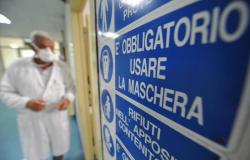Economist Vladislav Inozemtsev, former parliamentarian Dmitry Gudkov and the entrepreneur Dmitry Nekrasov they are three more than respectable figures in the opposition to Vladimir Putin who, since the beginning of the invasion of Ukraine, have had to move abroad to express their ideas freely. They recently launched the Center for analysis and strategies in Europe (CASE) which, as a first contribution to political reflection, published a report on the new Russian diaspora, the so-called relokantyof great interest for at least two reasons.
The first is the clear statement of what has been stubbornly denied in these two and a half years of war in Ukraine: “It should be noted that this war has not divided Russian society nor caused a powerful anti-regime movement. Indeed, it has seriously strengthened anti-Western sentiment in Russia. The policies of the Western authorities, who tried to support the pacifist and anti-Putin Russians, appear understandable and noble, but they are unlikely to be able to achieve serious changes in Russian politics – neither now, nor in the medium term.” Without metabolizing this reality, which was intuited at the time by those who had a minimum knowledge of Russia and history, no serious political analysis is possible.
The other interesting aspect of the research concerns those who left Russia coinciding with the invasion of Ukraine. Out of fear of war, disgust with Putin’s war, or any other reason, hundreds of thousands of Russians (according to some estimates, up to a million) have moved abroad. And almost always they were young and professionally trained people. So much so that the Russian authorities openly admit that they suffer from a shortage of executives. To train and prepare them, many initiatives have been launched, even a kind of prize competition. And the salaries of the managers who remained in Russia, especially technicians and IT workers, have grown exponentially.
In their report, Inozemtsev, Gudkov and Nekrasov criticize Western policies for failing to encourage the phenomenon in such a way as to further weaken Putin’s Russia, both from the point of view of social cohesion and that of economic solidity. The West has been very concerned about not letting money and technologies reach Russia but has not been equally concerned about taking precious human energy away from it. So much so that many relokanty (a term which however indicates a temporary transfer of people who nevertheless aspire to return to their homeland sooner or later), forced to face the difficulty of a new life abroad, have returned to Russia. According to a recent Bloomberg assessment, half of those who had already left.
Do you want to receive our newsletters?
We leave the solutions proposed by the three authors to the reading of the report. But let’s consider this: it’s a bit funny that we reach this conclusion after two and a half years of a war which, precisely from the point of view of this analysis, bled Ukraine much more than Russia. We have written many times on this topic and more than two years ago we already wrote that to weaken Russia it was necessary to open the borders to Russians, especially young people.
Well, Western governments have done exactly the opposite, and right from the start. Not only that: they immediately seized the assets of people who, with respect to the Russian invasion of Ukraine, were often guilty only of being Russian. Administrations, at all levels, have rushed to deny visas, restrict entry, prohibit meetings, conferences, performances, ballets, concerts of Russian intellectuals and artists. Athletes have been barred from competitions, often demanding statements of dissent from the war in Ukraine. As if we had asked US intellectuals and athletes to dissociate themselves from the invasion of Iraq. And so on.
Now, it is curious that the three authoritative Russian dissidents are only thinking about it now. But above all it is curious that they might think that it was a mistake. Do we have to believe that Western governments, from Washington to Rome, from Berlin to Paris, from Warsaw to London, are made up of total imbeciles? That no one, in any chancellery, has made the above reasoning? Impossible, right?
Therefore, only the opposite hypothesis remains on the table: that blaming all Russians, from students to pianists, from oligarchs to plumbers, without distinction and only on the basis of nationality, was a conscious and coherent choice. Partly due to the Russophobic DNA of many countries. Partly due to the belief in winning easily. But above all because Western politics now suffers from a stubborn compulsion to repeat its mistakes. He totally ignored the initial premise, which was that by doing so (i.e. trying to punish all Russians, regardless) he would be doing Putin a great favor. The experiences made with Iran, Cuba, Syria and all the many countries sanctioned over the years were of no use, where exactly the same thing happened: collective punishment pushed people towards the regime, not towards those who punish.
Inozemtsev, Gudkov and Nekrasov they also write that the Russian economic recovery of 2023 is due, at least in part, to the contribution of those young and prepared executives who, disappointed by the West, returned to their homeland. It seems like a somewhat “easy” explanation but not without elements of truth. It confirms, however, what we have been thinking for some time: our attitude towards Russia is so ideological and tinged with ignorance and arrogance that it turns against us.
Fulvio Scaglione
Give us one more minute of your time!
If you liked the article you just read, ask yourself: if I hadn’t read it here, could I have read it elsewhere? If there was no InsideOver, how many wars forgotten by the media would remain so? How many reflections on the world around you couldn’t you do? We work every day to provide you with quality reports and insights completely free of charge. But the type of journalism we do is anything but “cheap”. If you think we are worth encouraging and supporting, do it now.





